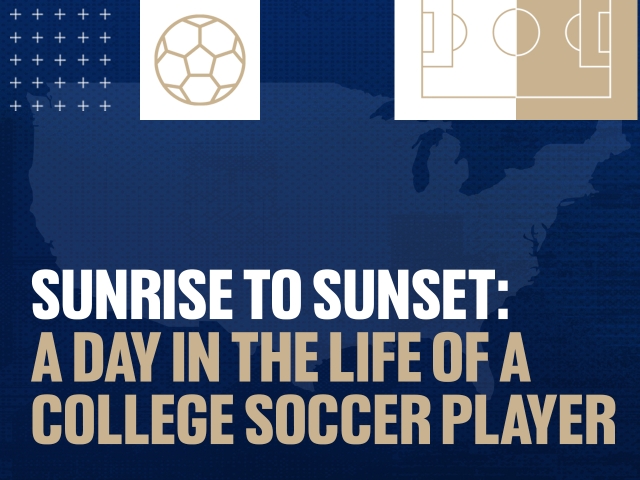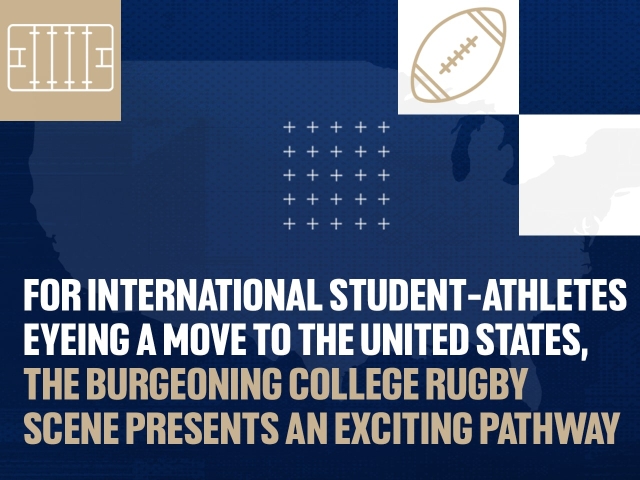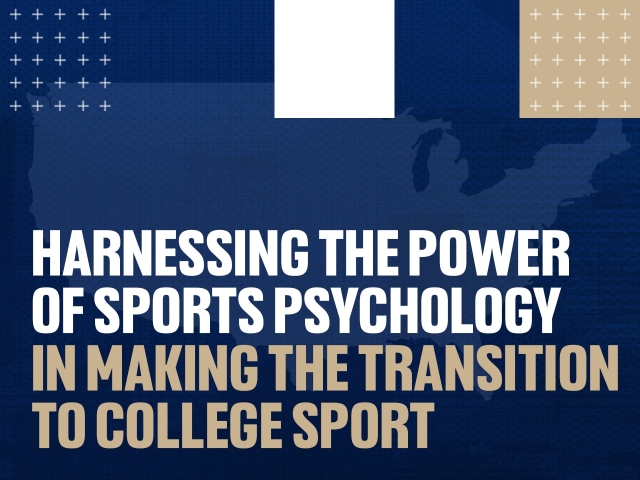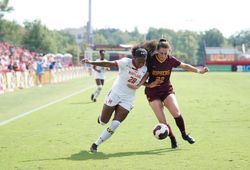Throughout the recruiting process, you can often feel like you're always in the spotlight, whether being evaluated at a showcase or trying to make a great impression on social media. But, in reality, recruiting is very much a two-way street. At the end of it all, you and your family should feel confident about your choice of college, knowing that you’ve picked a school that will allow you to thrive athletically as well as academically. To be sure of this, ask questions. Just as college coaches have to evaluate an athlete, an athlete needs to evaluate a school.
Research comes first
Generic questions will only get you so far. It’s important to research each school and program prior to speaking to coaches. Not only will you learn more about a variety of schools and programs, but it will prove to coaches that you’re seriously interested.
Here are some topics that are a good place to start:
- Knowledge of the university (majors offered, life on campus, academic advisors, etc.)
- Knowledge and history of the program
- How they did last season and even how they did last week
- Upcoming games
- Notable athletes and success they’ve had on or off the field
Questions to ask when calling a coach for the first time
Initial contact with a college coach is all about level-setting and finding out if everyone is on the same page. The answers to these questions will give your family insight on where the coach is at in their recruiting and if your student-athlete is on or near their list of top prospects:
- Are there any specific camps, tournaments, or showcases you think I should attend? Knowing where the coach will be boosts your chances of being evaluated.
- How is your recruiting going for the 2018 (or your graduation year) class? The college coach may not disclose specific details about who they’re recruiting, but their answer will help your student-athlete figure out where they stand and if their position is being filled.
- What does it take to earn a scholarship for your program? This is a good time for you to be upfront about scholarship opportunities and learn if you have a chance at landing one. This is not the time to ask for a scholarship, however.
- What are good academic goals for your school? It’s important that you stay on track to qualify academically.
- Can I meet with you on an unofficial visit? If the coach responds positively, you know their interest is real.
- How can I update you on my progress? Every coach has a preferred method of contact, whether it’s calling or emailing. If a coach gives you their personal cell phone number, that’s another indication you are higher on the list of prospects.
At this point, you know the college coach is interested in you — maybe they’ve even invited you and your family to visit. Here are some questions you can ask to learn if the school and program is a good fit:
- What kind of academic support will I receive? Some schools have academic counsellors specifically assigned to athletes, while others have mandatory study hours carved out each week.
- What are the most common majors on the team and what is the team’s average GPA? You want to make sure that you can balance your major with your athletic commitments.
- What are off-season and holiday commitments? Training happens all year long. Some coaches require their team to stay on campus during break.
- Can you run me through a typical week of practice? You learn about the coaching style and try to get a sample schedule. Figure out the coach’s strengths and who will be working with you the most.
- Are there any current athletes on the team I can talk to? You will spend most of your week with teammates — you’ll probably even live with them. The best chance to meet potential teammates in person is on an unofficial or official visit.
- What goals do you have for this upcoming season? This will help you to gauge the team’s level of success.
Doing your research and asking thoughtful, fact-finding questions for college coaches will go a long way to helping you decide what school and program is the right fit. Of course, that’s only part of the equation. Many athletes and their families will say that campus visits really made the decision process much easier. Some schools shined while others that looked great on paper, just didn’t live up to expectations.





